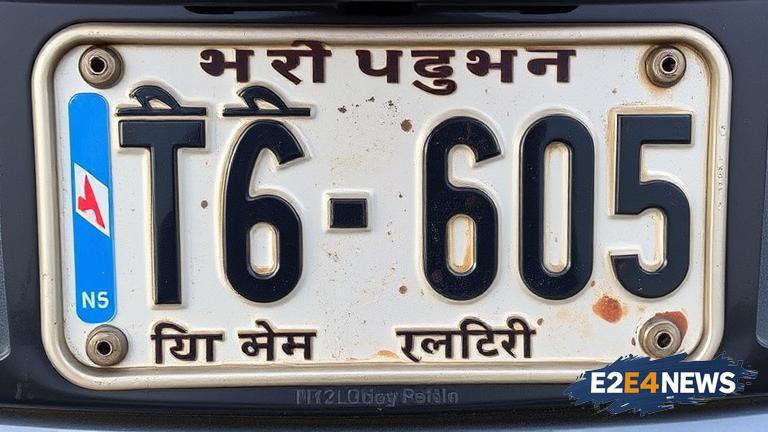The government of Nepal has pushed ahead with its decision to enforce embossed number plates on all vehicles, despite the confusion and uncertainty surrounding the move. The new system, which is set to be implemented soon, aims to improve the security and tracking of vehicles across the country. However, many citizens and transport operators have expressed concerns about the sudden introduction of the new system, citing a lack of clarity and preparation. The government has argued that the embossed number plates will help to reduce the incidence of vehicle theft and improve road safety. The new plates will feature a unique combination of letters and numbers, which will be linked to the vehicle’s registration details. The government has also announced that the new plates will be mandatory for all vehicles, including private cars, taxis, and trucks. The move is expected to affect thousands of vehicle owners and operators, who will be required to replace their existing number plates with the new embossed ones. The cost of the new plates is expected to be around NPR 2,500, which has been criticized as being too expensive for many vehicle owners. The government has also faced criticism for not providing adequate notice and preparation time for the introduction of the new system. Many vehicle owners and operators have complained that they were not aware of the new requirement, and have not had time to prepare for the change. The government has announced that it will provide a grace period for vehicle owners to replace their existing number plates, but the exact duration of the grace period has not been specified. The introduction of the embossed number plates is part of a broader effort by the government to improve the management and regulation of vehicles in Nepal. The government has also announced plans to introduce a new vehicle registration system, which will be linked to the embossed number plates. The new system is expected to improve the efficiency and transparency of vehicle registration, and will help to reduce the incidence of corruption and fraud. However, the introduction of the new system has been plagued by delays and technical issues, which have caused frustration among vehicle owners and operators. The government has faced criticism for its handling of the introduction of the new system, with many accusing it of being poorly planned and executed. Despite the challenges and controversies surrounding the introduction of the embossed number plates, the government remains committed to implementing the new system. The government has argued that the benefits of the new system, including improved security and road safety, outweigh the costs and challenges of implementation. The introduction of the embossed number plates is a significant development in the transport sector in Nepal, and is expected to have a major impact on vehicle owners and operators. The government has announced that it will continue to monitor the implementation of the new system, and will make adjustments as necessary to ensure its success. The introduction of the embossed number plates is part of a broader effort by the government to improve the transport sector in Nepal, and to promote economic growth and development. The government has also announced plans to invest in new transport infrastructure, including roads and public transport systems, which will help to improve the efficiency and safety of transport in Nepal.
